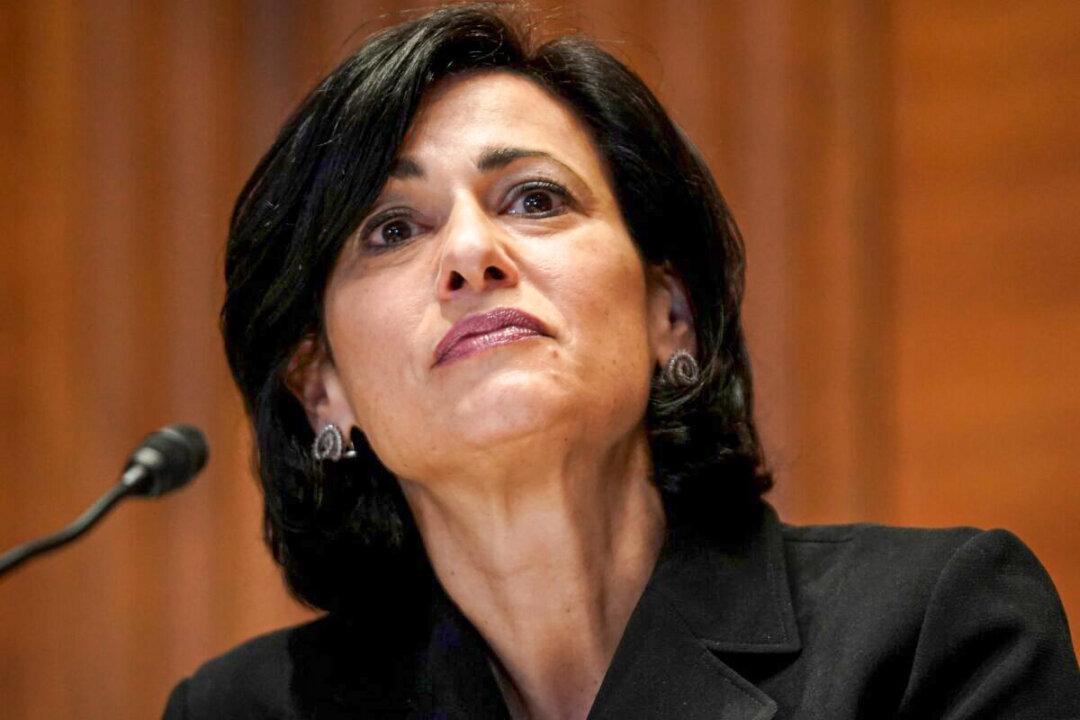As federal health officials publicly mull over the definition of what constitutes “fully vaccinated,” the head of the Centers for Disease Control and Prevention (CDC) said Tuesday that her agency is still evaluating it.
Currently, one is considered fully vaccinated if they have received either one Johnson & Johnson COVID-19 vaccine dose, two Moderna vaccine doses, or two Pfizer doses. The CDC is the agency that will ultimately decide whether the definition of fully vaccinated will include a booster dose.





